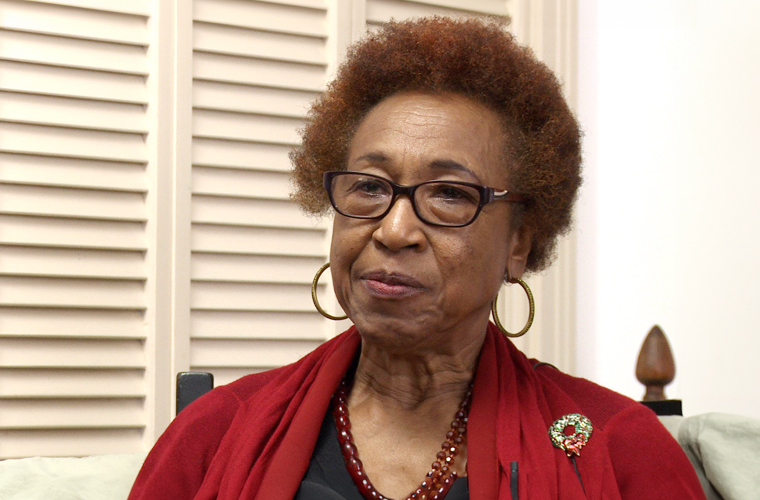Frankye Adams-Johnson’s involvement as a Civil Rights activist in the Jackson Movement was a pivotal part of her life, shaping her political consciousness and paving the way for her significant contributions to the struggle for racial equality. As a student at Tougaloo College, she became deeply involved with the Student Nonviolent Coordinating Committee (SNCC), the Freedom Riders, and the historic March on Washington. Throughout her journey, she emphasized the themes of racial consciousness, gender, and violence, which played a crucial role in shaping her political identity and activism.
Adams-Johnson’s journey as a Civil Rights activist began during her time at Tougaloo College, where she was exposed to the harsh realities of racial discrimination and segregation. This exposure fueled her passion for social justice and ignited her determination to fight against the systemic oppression faced by African Americans. Her involvement with SNCC provided her with a platform to actively engage in nonviolent protest and civil disobedience, becoming a prominent voice in the struggle for racial equality.
The Freedom Riders played a significant role in Adams-Johnson’s activism, as she participated in the courageous efforts to desegregate interstate bus travel in the South. The Freedom Rides were a powerful demonstration of nonviolent resistance, challenging the deeply entrenched segregation laws and practices that perpetuated racial inequality. Adams-Johnson’s participation in the Freedom Rides exemplified her unwavering commitment to confronting injustice and advocating for meaningful change.
The March on Washington in 1963 was a defining moment in Adams-Johnson’s activism, as she joined thousands of others in demanding civil and economic rights for African Americans. The historic event, highlighted by Dr. Martin Luther King Jr.’s iconic “I Have a Dream” speech, served as a powerful catalyst for change and galvanized the nation’s attention on the urgent need for racial justice. Adams-Johnson’s presence at the march symbolized her dedication to the cause and her willingness to stand up against inequality.
Throughout her journey as a Civil Rights activist, Adams-Johnson navigated the intersectionality of race and gender, recognizing the unique challenges faced by African American women in the fight for equality. She became acutely aware of the double burden of discrimination carried by black women, and she tirelessly advocated for their inclusion and recognition within the broader Civil Rights movement. Her efforts helped elevate the voices of black women and underscored their invaluable contributions to the struggle for justice.
The issue of violence also loomed large in Adams-Johnson’s activism, as she witnessed and experienced firsthand the brutal tactics employed by authorities to suppress Civil Rights protests. The pervasive threat of violence posed a constant danger to activists, yet it failed to deter their resolve to challenge injustice and demand equality. Adams-Johnson’s courage in the face of such adversity exemplified her unwavering commitment to nonviolent resistance and social change.
As her political role continued to evolve, Adams-Johnson found herself drawn to the Black Panther Party, recognizing its emphasis on self-defense, community empowerment, and revolutionary action. She became actively involved in the party’s efforts to address systemic issues plaguing African American communities, including police brutality, poverty, and lack of access to basic resources. Her alignment with the Black Panther Party reflected her unwavering dedication to addressing the root causes of racial inequality and advocating for tangible solutions.
In conclusion, Frankye Adams-Johnson’s journey as a Civil Rights activist reflects a profound commitment to challenging racial injustice and advocating for meaningful change. Her involvement with SNCC, the Freedom Riders, the March on Washington, and the Black Panther Party exemplifies her unwavering dedication to confronting systemic oppression and standing up for equality. Through her emphasis on racial consciousness, gender, and violence, she has left an indelible mark on the ongoing struggle for Civil Rights and social justice.

